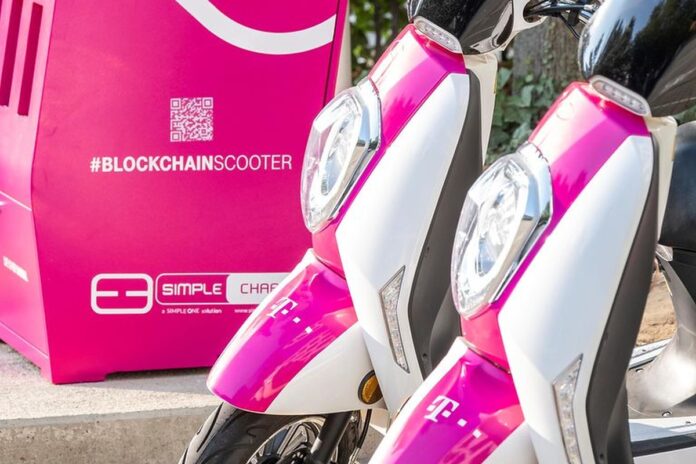T-Labs, Deutsche Telekom’s innovation unit, has launched a new blockchain-based e-mobility pilot named Xride.
Initially, the initiative will focus on a fleet of electric scooters used by employees working at Deutsche Telekom’s headquarters in Bonn.
Xride will run on the ståx blockchain platform, which has been developed by T-Labs. ståx connects blockchain technologies together into one operating stack and makes it easily manageable between multiple enterprises. In the Xride pilot, ståx enables shared deployment, where blockchain nodes run on machines, devices and clouds, such as IBM Cloud).
John Calian, Senior Vice President and Head of T-Labs, said, “In Xride, historically centralised functionalities like identity management, data verification and storage, payments and charging are fully decentralised. This allows for a less costly, more secure and more efficient vehicle sharing that benefits both providers and the user.”
Trusted ecostructures
T-Labs says ståx underpins the creation of decentralised, trusted and secure IoT ‘ecostructures’ – ecosystem infrastructures – which will be critical for the evolution of machine-to-machine economies. “In such ecostructures, producers and consumers connect in a decentralised manner and share trusted data,” the company said in a statement.
Partners in the pilot project include :
• RIDDLE&CODE, Bundesdruckerei and Jolocom, who provide software and hardware layers that fully decentralise identity verification and identity management.
• Giesecke+Devrient Mobile Security and Ubirch, who provide trusted connectivity and transport of cryptographically verifiable data from an eSIM card to ståx.
• Simple Mobility and Telekom Mobility Solutions, two e-mobility providers who will ‘cooperatively compete’ with their services within Xride.
T-Labs says that the findings of the pilot could be beneficial for healthcare, utility networks, logistics and more in the future.


